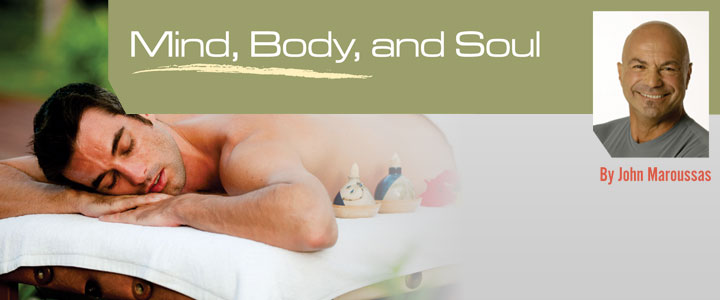
An initial diagnosis of being HIV+ can be devastating news. The stigmatization of being sero-positive, which does exist within the gay community, can create a feeling of being untouchable, fated never again to have an easy intimate relationship. The stress and anxiety this creates is anything but helpful in dealing with a person’s health and well-being.
 Massage Improves Well-Being
Massage Improves Well-Being
An initial diagnosis of being HIV+ can be devastating news. The stigmatization of being sero-positive, which does exist within the gay community, can create a feeling of being untouchable, fated never again to have an easy intimate relationship. The stress and anxiety this creates is anything but helpful in dealing with a person’s health and well-being.
Anyone who has had a professional massage has discovered the relaxing, peaceful and sometimes invigorating effects this can have. People with HIV/AIDS have praised the benefits of massage over many years, claiming that it has helped stress reduction and, among other benefits, increased T cells.
But this is not just a subjective judgment by a few people who were predisposed to view massage in a positive light. The Touch Research Institute of the University of Miami has undertaken a number of studies on the various benefits of massage therapy, and its effects among a wide range of individuals. Three studies are of particular interest to those among us living with HIV/AIDS.
First off, in 1996, a study among 29 HIV positive men showed that a majority of individuals receiving massage therapy experienced improvement in immune system function, both in the number of natural killer cells and in the activity of those cells. Following this study showing that massage can build the immune system, two further research projects were initiated.
The second project involved nine healthy female medical students in the middle of the examinations period. Not only did the students report reduced anxiety, but blood samples taken before and after the massage showed that five had a substantial increase in white blood cell numbers and in the activity of natural killer cells.
The third study involved twenty breast cancer patients, divided into two groups, one acting as a control for the experiment. One group simply watched relaxation tapes and the other group received massage three times a week for five weeks. Those patients who received massage therapy showed an 80% improvement in immune system function. Only 30% of the control group showed any improvement.
While these studies were all done with relatively small numbers of patients, the results are dramatic in each case, and point clearly to the conclusion that massage can lead to an improvement in immune system function.
Of course it is not suggested that massage should be used alone in the treatment of HIV/AIDS, but as an adjunct to other treatments it certainly has an important role to play.
It is clear is that massage works to boost the immune system function by reducing anxiety and stress, increasing white blood counts, decreasing levels of cortisol, and activating disease-fighting cells. The experience of receiving massage in a caring and empathetic environment is a boost to the emotional well-being of the individual, and while some would argue that this is in itself a form of healing, what cannot be denied is that well-balanced and positive emotions are something to be desired in all of us.















